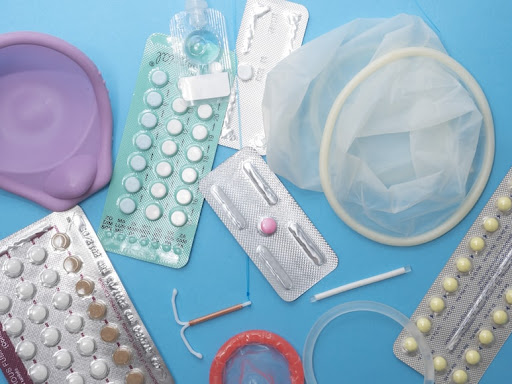Contraception: a safer option
October 26, 2022
The talk. You’re finally old enough, and your parents sit you down to have one of the most awkward discussions about sex, contraception, and how to avoid unwanted pregnancy. Today, more than ever, we need to be cautious about contraception because of decisions like the overturning of Roe v. Wade and the increasing number of people contracting STIs. This decision takes away federal protection for abortion rights. Abortion is still legal in New Jersey, however, this issue remains at the forefront of everyone’s mind.
The most popular and common forms of birth control options include condoms, depo-provera shot, and birth control pills.
According to Planned Parenthood, it states, “When used correctly every time you have sex, male condoms are 98% effective. This means 2 out of 100 people will become pregnant in 1 year when male condoms are used as contraception.” There are both male and female condoms, and although the process for inserting and removing them is different, both have the same purpose. The condom is a barrier and can help you stay safe from STIs if used correctly. The shot is called Depo shot (AKA Depo-Provera), an injection you have to get once every three months and prevents ovulation, it is 94% effective. The birth control pill works by stopping ovulation and should be taken daily. Many choose this option because they are the safest and most effective form of contraception.
Another type of birth control is emergency contraception pills. Three main types of morning-after pills are only effective if you take them as soon as possible after unprotected sexual intercourse. According to an article by Cleveland Clinic, “The main way the morning-after pill works is by preventing ovulation. Ovulation is the phase when your ovaries release an egg that can then be fertilized by sperm and begin the fetal development process. If you don’t ovulate, you can’t get pregnant.” The pill has no severe side effects and is only a temporary way to prevent pregnancy. Progestin-only pills (Plan B One-Step) have a three-day window before it becomes ineffective, Ulipristal (Ella) has five days, and combined birth control pills have up to five days. Progestin-only pills are available over the counter, but ulipristal is a prescription-only medication. Anyone can purchase Plan B and other emergency contraceptives over the counter.
Every option has its pros and cons, so it is essential to do your research to see which will work best for you. The best way to avoid unwanted pregnancies is to prioritize contraceptives and practice safe sex.
